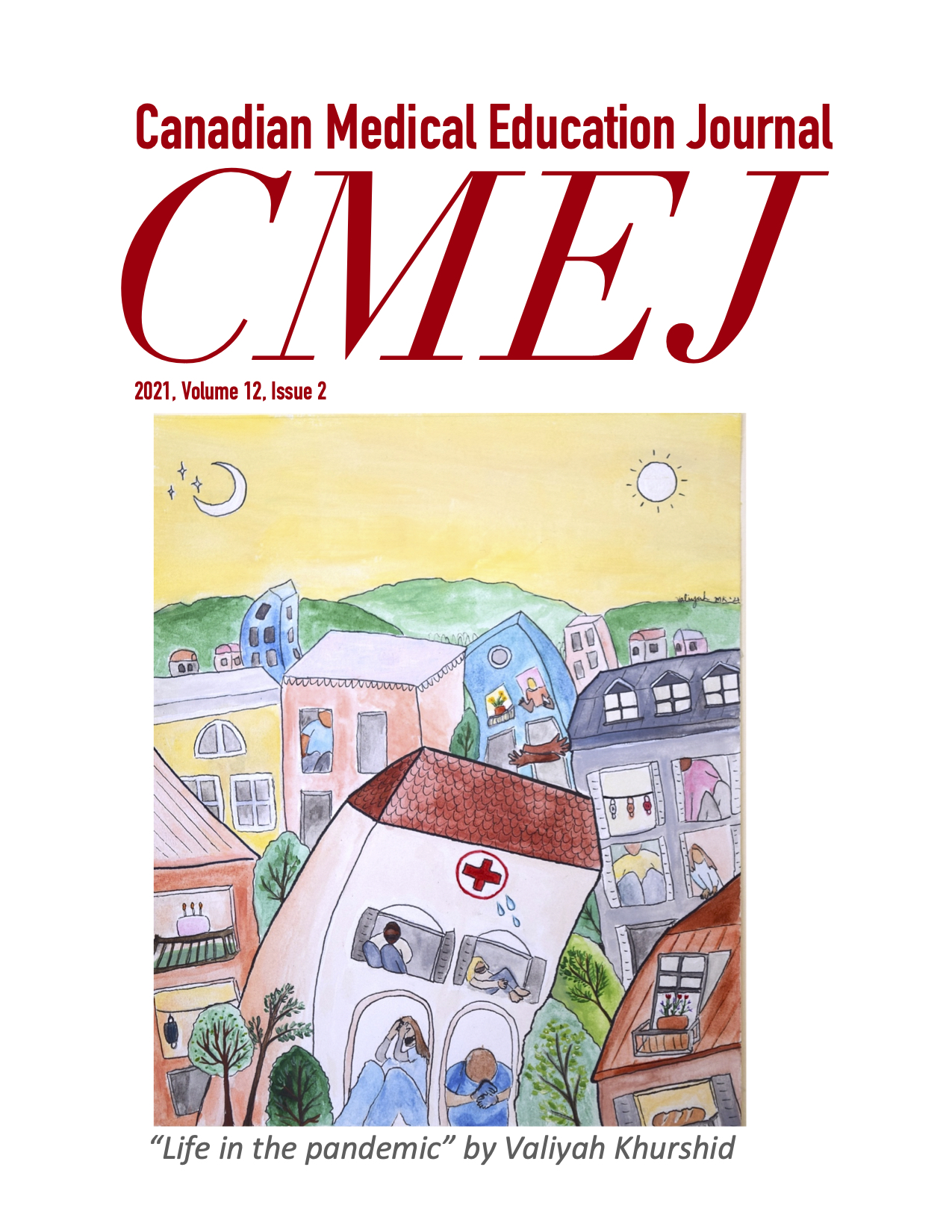First year medical student experiences with a clinical skills seminar emphasizing sexual and gender minority population complexity
DOI:
https://doi.org/10.36834/cmej.70496Abstract
Purpose: Patients identifying as sexual and gender minorities (SGMs) face healthcare barriers. This problem is partly due to medical training.1 We evaluated first year medical student experiences during a novel four-hour seminar, in which students answered discussion questions, participated in peer role-plays, and interviewed two standardized patients
Method: A constructivist qualitative design employed audio-recorded and transcribed student focus groups. Using generic content analysis, transcripts were iteratively coded, emergent categories identified, sensitizing concepts applied, and a thematic framework created.
Results: Thirty-five students (71% female) participated in five focus groups. Two themes were developed: SGM bias (faculty, standardized patients [SPs], students, curriculum), and Adaptive Expertise in Clinical Skills (case complexity, learner support, skill development). SPs identifying as SGM brought authenticity and lived experience to their roles. Preceptor variability impacted student learning. Students were concerned when a lack of faculty SGM knowledge accompanied negative biases. Complex SP cases promoted cognitive integration and preparation for clinical work.
Conclusions: These students placed importance on the lived experiences of SGM community members. Persistent prejudices amongst faculty negatively influenced student learning. Complex SP cases can promote student adaptive expertise, but risk unproductive learning failures. The lessons learned have implications for clinical skills teaching, learning about minority populations, and medical and health professions education in general.
Downloads
Published
Issue
Section
License
Submission of an original manuscript to the Canadian Medical Education Journal will be taken to mean that it represents original work not previously published, that it is not being considered elsewhere for publication. If accepted for publication, it will be published online and it will not be published elsewhere in the same form, for commercial purposes, in any language, without the consent of the publisher.
Authors who publish in the Canadian Medical Education Journal agree to release their articles under the Creative Commons Attribution-Noncommercial-No Derivative Works 4.0 Canada Licence. This licence allows anyone to copy and distribute the article for non-commercial purposes provided that appropriate attribution is given. For details of the rights an author grants users of their work, please see the licence summary and the full licence.











